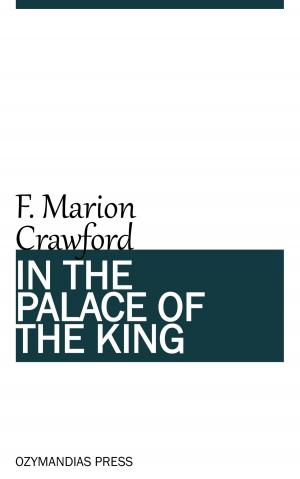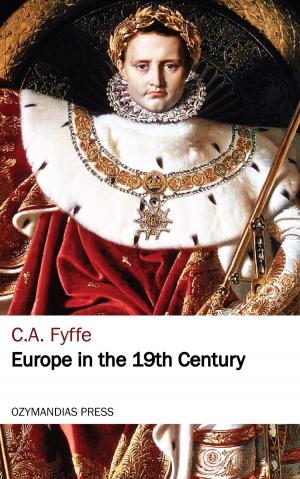| Author: | J.G. Edgar | ISBN: | 9781531281687 |
| Publisher: | Ozymandias Press | Publication: | June 7, 2016 |
| Imprint: | Language: | English |
| Author: | J.G. Edgar |
| ISBN: | 9781531281687 |
| Publisher: | Ozymandias Press |
| Publication: | June 7, 2016 |
| Imprint: | |
| Language: | English |
About the middle of the ninth century a warrior named Tertullus, having rendered signal services to the King of France, married Petronella, the king's cousin, and had a son who flourished as Count of Anjou. The descendants of Tertullus and Petronella rose rapidly, and exercised much influence on French affairs. At length, in the twelfth century, Geoffrey, Count of Anjou, surnamed Plantagenet, from wearing a sprig of flowering broom instead of a feather, espoused Maude, daughter of Henry Beauclerc, King of England; and Henry Plantagenet, their son, succeeded, on the death of Stephen, to the English throne.
Having married Eleanor, heiress of Aquitaine, and extended his continental empire from the Channel to the Pyrenees, Henry ranked as the most potent of European princes. But, though enabled to render great services to England, he was not an Englishman; and, indeed, it was not till the death of John, at Swinehead, that the English had a king who could be regarded as one of themselves. That king was Henry the Third, born and educated in England, and sympathizing with the traditions of the people over whom he reigned.
Unfortunately for Henry, he was surrounded by Continental kinsmen, whose conduct caused such discontent that clergy, barons, citizens, and people raised the cry of England for the English; and Simon de Montfort, though foreign himself, undertook to head a movement against foreigners. A barons' war was the consequence. Henry, defeated at Lewes, became a prisoner in the hands of the oligarchy; and there was some prospect of the crown passing from the house of Plantagenet to that of Montfort.
At this crisis, however, Edward, eldest son of the king, escaped from captivity, destroyed the oligarchy in the battle of Evesham, and entered upon his great and glorious career. Space would fail us to expatiate on the services which, when elevated to the throne as Edward the First, that mighty prince rendered to England. Suffice it to say that he gave peace, prosperity, and freedom to the people, formed hostile races into one great nation, and rendered his memory immortal by the laws which he instituted.
For the country which the first Edward rendered prosperous and free, the third Edward and his heroic son won glory in those wars which made Englishmen, for a time, masters of France. Unhappily, the Black Prince died before his father; and his only son, who succeeded when a boy as Richard the Second, departed from right principles of government. This excited serious discontent, and led the English people to that violation of "the lineal succession of their monarchs" which caused the Wars of the Roses...
About the middle of the ninth century a warrior named Tertullus, having rendered signal services to the King of France, married Petronella, the king's cousin, and had a son who flourished as Count of Anjou. The descendants of Tertullus and Petronella rose rapidly, and exercised much influence on French affairs. At length, in the twelfth century, Geoffrey, Count of Anjou, surnamed Plantagenet, from wearing a sprig of flowering broom instead of a feather, espoused Maude, daughter of Henry Beauclerc, King of England; and Henry Plantagenet, their son, succeeded, on the death of Stephen, to the English throne.
Having married Eleanor, heiress of Aquitaine, and extended his continental empire from the Channel to the Pyrenees, Henry ranked as the most potent of European princes. But, though enabled to render great services to England, he was not an Englishman; and, indeed, it was not till the death of John, at Swinehead, that the English had a king who could be regarded as one of themselves. That king was Henry the Third, born and educated in England, and sympathizing with the traditions of the people over whom he reigned.
Unfortunately for Henry, he was surrounded by Continental kinsmen, whose conduct caused such discontent that clergy, barons, citizens, and people raised the cry of England for the English; and Simon de Montfort, though foreign himself, undertook to head a movement against foreigners. A barons' war was the consequence. Henry, defeated at Lewes, became a prisoner in the hands of the oligarchy; and there was some prospect of the crown passing from the house of Plantagenet to that of Montfort.
At this crisis, however, Edward, eldest son of the king, escaped from captivity, destroyed the oligarchy in the battle of Evesham, and entered upon his great and glorious career. Space would fail us to expatiate on the services which, when elevated to the throne as Edward the First, that mighty prince rendered to England. Suffice it to say that he gave peace, prosperity, and freedom to the people, formed hostile races into one great nation, and rendered his memory immortal by the laws which he instituted.
For the country which the first Edward rendered prosperous and free, the third Edward and his heroic son won glory in those wars which made Englishmen, for a time, masters of France. Unhappily, the Black Prince died before his father; and his only son, who succeeded when a boy as Richard the Second, departed from right principles of government. This excited serious discontent, and led the English people to that violation of "the lineal succession of their monarchs" which caused the Wars of the Roses...















